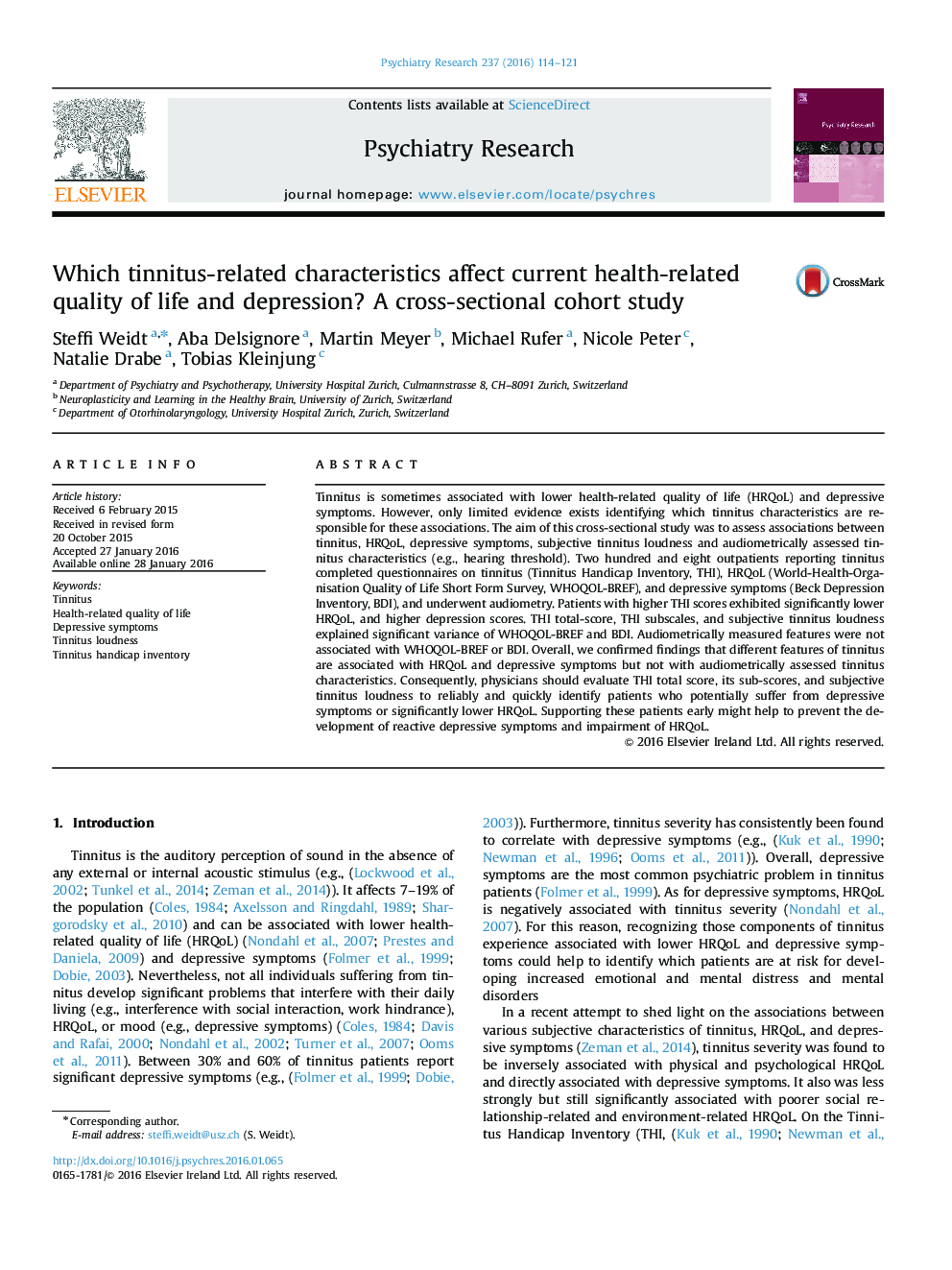| Article ID | Journal | Published Year | Pages | File Type |
|---|---|---|---|---|
| 333101 | Psychiatry Research | 2016 | 8 Pages |
•Worse tinnitus is associated with lower health-related quality of life (HRQoL).•Worse tinnitus is correlated with worse depressive symptoms.•Audiometrically measured tinnitus features are not associated with HRQoL.•Physicians should evaluate tinnitus to identify highly suffering patients.•Supporting highly suffering patients might prevent decompensation of tinnitus.
Tinnitus is sometimes associated with lower health-related quality of life (HRQoL) and depressive symptoms. However, only limited evidence exists identifying which tinnitus characteristics are responsible for these associations. The aim of this cross-sectional study was to assess associations between tinnitus, HRQoL, depressive symptoms, subjective tinnitus loudness and audiometrically assessed tinnitus characteristics (e.g., hearing threshold). Two hundred and eight outpatients reporting tinnitus completed questionnaires on tinnitus (Tinnitus Handicap Inventory, THI), HRQoL (World-Health-Organisation Quality of Life Short Form Survey, WHOQOL-BREF), and depressive symptoms (Beck Depression Inventory, BDI), and underwent audiometry. Patients with higher THI scores exhibited significantly lower HRQoL, and higher depression scores. THI total-score, THI subscales, and subjective tinnitus loudness explained significant variance of WHOQOL-BREF and BDI. Audiometrically measured features were not associated with WHOQOL-BREF or BDI. Overall, we confirmed findings that different features of tinnitus are associated with HRQoL and depressive symptoms but not with audiometrically assessed tinnitus characteristics. Consequently, physicians should evaluate THI total score, its sub-scores, and subjective tinnitus loudness to reliably and quickly identify patients who potentially suffer from depressive symptoms or significantly lower HRQoL. Supporting these patients early might help to prevent the development of reactive depressive symptoms and impairment of HRQoL.
